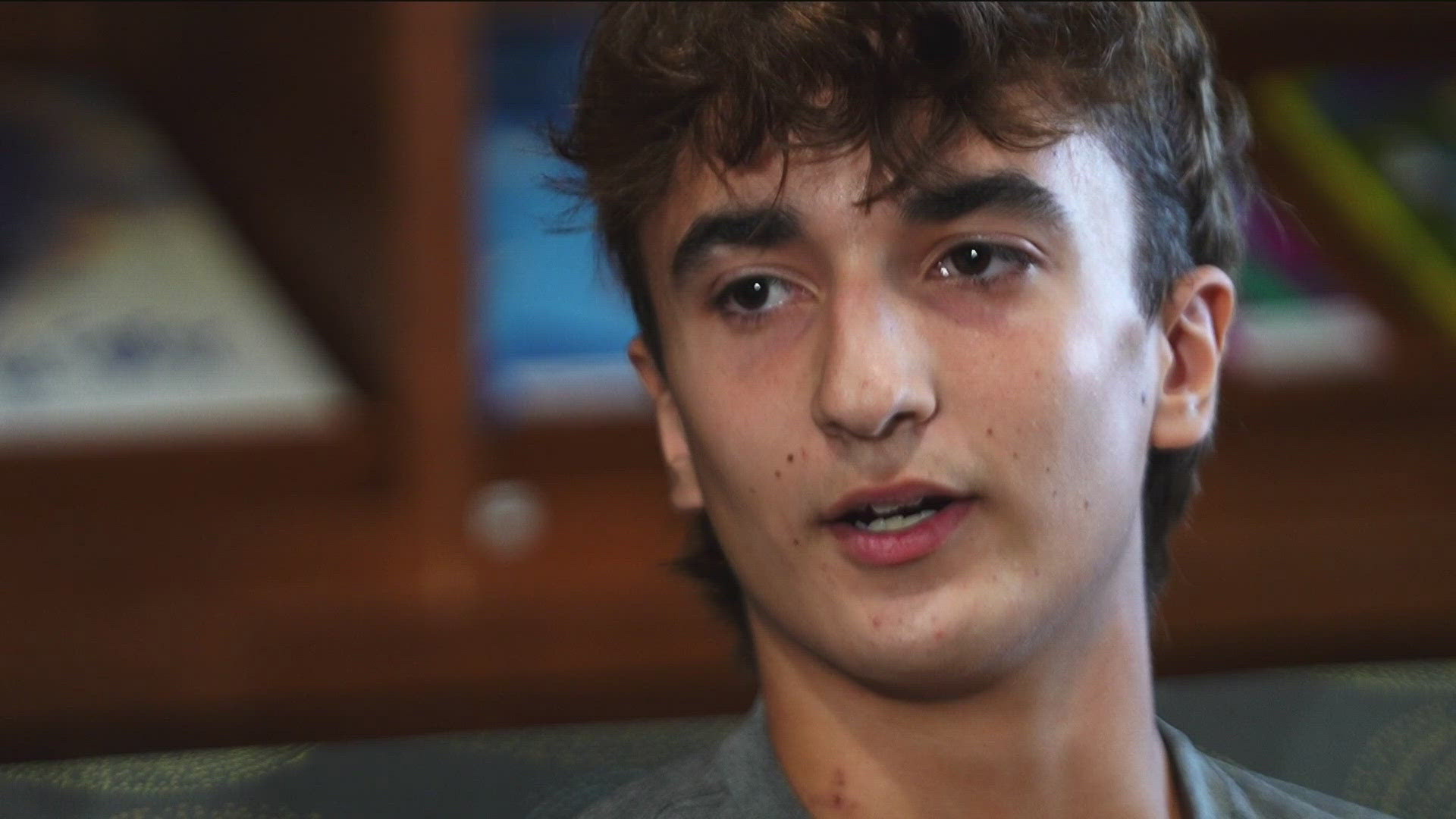STILLWATER, Minn — As a Stillwater firefighter, Katie Hawke understood the gravity of the call that flashed across the app first responders like her monitor.
"They had actually said in the notes, 'AED-delivered shock,'" Katie said.
Then came a phone call to inform Katie it was her son, Keegan Hawke, who had collapsed on the Stillwater High School football practice field, suffering sudden cardiac arrest.
"I mean it's.. it's a nightmare," Katie said. "Both as a parent and as a firefighter because it's already a bad call. And now it's your kid."
"I don't really remember that whole day," Keegan said.
Keegan said he's felt his heart rate speed up at times before going back to normal. Doctors had checked him out in the past and told him his heart was normal.
On Sept 24, Keegan experienced that feeling again and wanted to alert his junior varsity coach.
"We were running a drill, a non-contact drill, and I was told I started yelling to my coach and running over to him," Keegan said.
Keegan collapsed at his coach's feet. Teammates immediately alerted Stillwater head athletic trainer Michael Renfro and assistant Olivia DuBois.
DuBois started CPR as Renfro prepared the automated external defibrillator, or AED, a portable device meant to save lives during sudden cardiac arrest.
In his 15 years as a trainer, Renfro had never used an AED on a person. But he said it went just like during training.
The AED combined with CPR brought back Keegan's pulse.
"Thank God for everybody that was there," Katie said. "We didn't know if he had brain damage. We didn't know if he was going to make it."
It was the day before Keegan's 16th birthday, a milestone that passed while he was in a medically-induced coma in the hospital, where he woke up after 72 hours.
"You had a lot of questions," Katie said to Keegan during an interview with KARE 11 News before joking, "But they were pretty hard to understand."
Laughing, Keegan responded, "Yeah, I was under a lot of drugs, so…"
It's so much easier to laugh now. Keegan has no brain damage. A device implanted in his chest will regulate his heart. He can still play basketball, but his football days are over. And that is one of the toughest parts for this sophomore.
"I just like playing sports and being physical. So being told I can't play a sport I love is very hard," he said.
But to be able to walk out of the hospital, to go home with family just 10 days later, is a privilege neither Keegan nor any of his family takes lightly.
After this experience, Katie and Keegan are determined to spread awareness of sudden cardiac arrest and the benefits of accessible AEDs. They've started a Gofundme page to help in those efforts.

